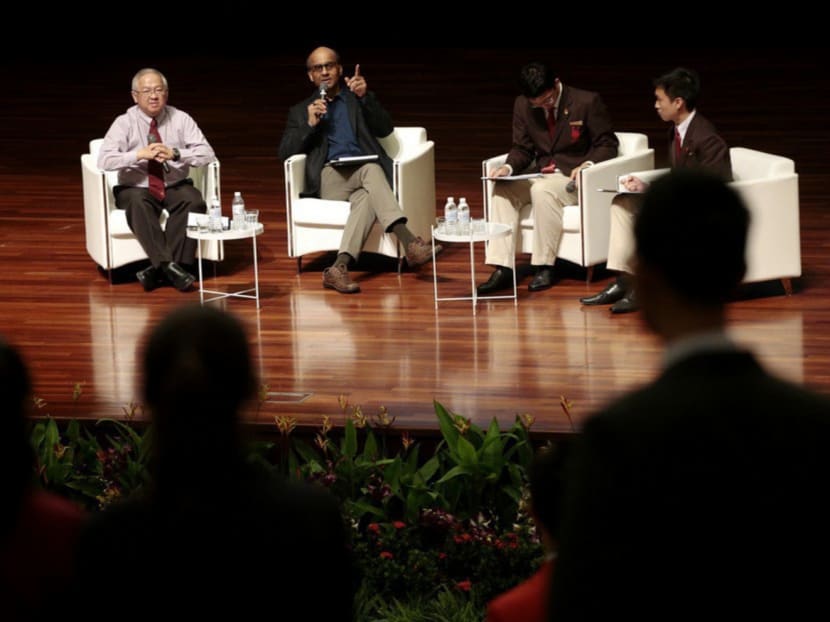Future schools will cater to students’ interests, strengths
SINGAPORE — In Deputy Prime Minister Tharman Shanmugaratnam’s vision of Singapore 20 years down the road — shaped after a quick survey of pre-university students — Jurong Secondary School would be a very popular school where primary school students compete to get in for its basketball programme and scholarships.
SINGAPORE — In Deputy Prime Minister Tharman Shanmugaratnam’s vision of Singapore 20 years down the road — shaped after a quick survey of pre-university students — Jurong Secondary School would be a very popular school where primary school students compete to get in for its basketball programme and scholarships.
Jurong Secondary’s environmental science programme would be known nationwide and abroad, with students developing sensors to detect the species and number of fish in neighbouring Jurong Lake.
As lifelong learning gains traction here and jobs and tertiary education evolve, so will the school system, said Mr Tharman, who quipped about his bias for Jurong Secondary as it was in his constituency.
Parents would select schools based on what they offer and their children’s interests rather than cut-off points, while schools would place a premium on original thinking and strength of character, said Mr Tharman, who was speaking at the Pre-University Seminar opening yesterday.
More open and flexible learning would stem from employers being more focused on skills and job performance. This form of learning would also cater to how people develop, because passion for learning develops at different stages of life, said Mr Tharman. Some people were “switched off” when they were young, while others thrive in a team or when doing something that fascinates them.
Tertiary education will change. “The campus-only model will be outdated, and the dominant form of learning will be what they call ‘blended learning’. Some face-to-face interaction with your peers and lecturers on campus, but also learning at the workplace, structured, longer internships, and learning online,” he said. Universities and other tertiary institutions will want to provide quality lifelong education that blends the academic with the practical, he said.
Asked by students after his speech if a more modular approach would mean students having to make choices from a young age, Mr Tharman said it would not be so. A modular approach provides a taste of different things. Quite a number of people today do not embark on careers they were trained for, he added.
And in seeking a new balance in meritocracy that gives recognition to a wider range of talents, Singapore is taking a bit of a lead on Asian countries with highly competitive exam meritocracies, he said.







